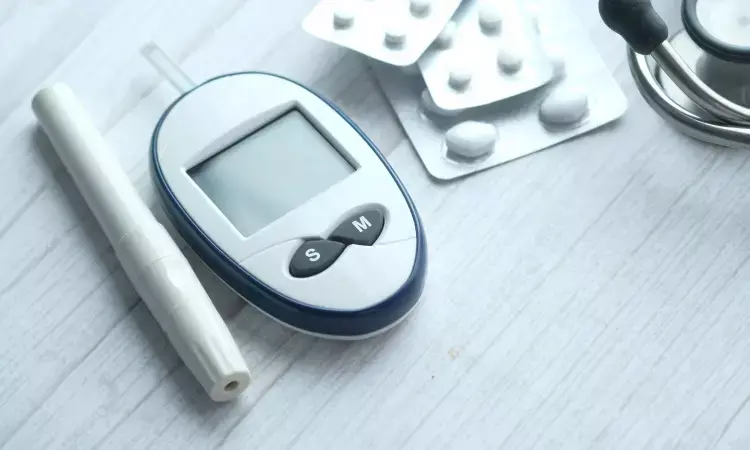- Home
- Medical news & Guidelines
- Anesthesiology
- Cardiology and CTVS
- Critical Care
- Dentistry
- Dermatology
- Diabetes and Endocrinology
- ENT
- Gastroenterology
- Medicine
- Nephrology
- Neurology
- Obstretics-Gynaecology
- Oncology
- Ophthalmology
- Orthopaedics
- Pediatrics-Neonatology
- Psychiatry
- Pulmonology
- Radiology
- Surgery
- Urology
- Laboratory Medicine
- Diet
- Nursing
- Paramedical
- Physiotherapy
- Health news
- Fact Check
- Bone Health Fact Check
- Brain Health Fact Check
- Cancer Related Fact Check
- Child Care Fact Check
- Dental and oral health fact check
- Diabetes and metabolic health fact check
- Diet and Nutrition Fact Check
- Eye and ENT Care Fact Check
- Fitness fact check
- Gut health fact check
- Heart health fact check
- Kidney health fact check
- Medical education fact check
- Men's health fact check
- Respiratory fact check
- Skin and hair care fact check
- Vaccine and Immunization fact check
- Women's health fact check
- AYUSH
- State News
- Andaman and Nicobar Islands
- Andhra Pradesh
- Arunachal Pradesh
- Assam
- Bihar
- Chandigarh
- Chattisgarh
- Dadra and Nagar Haveli
- Daman and Diu
- Delhi
- Goa
- Gujarat
- Haryana
- Himachal Pradesh
- Jammu & Kashmir
- Jharkhand
- Karnataka
- Kerala
- Ladakh
- Lakshadweep
- Madhya Pradesh
- Maharashtra
- Manipur
- Meghalaya
- Mizoram
- Nagaland
- Odisha
- Puducherry
- Punjab
- Rajasthan
- Sikkim
- Tamil Nadu
- Telangana
- Tripura
- Uttar Pradesh
- Uttrakhand
- West Bengal
- Medical Education
- Industry
Vitamin D intake could delay development of type 2 diabetes in adults with prediabetes: Study

USA: Higher vitamin D intake is linked to a 15% lower risk of developing type 2 diabetes in adults with prediabetes, according to results from a review of clinical trials. The review appeared in the Annals of Internal Medicine.
Prediabetes is a condition of having a higher-than-normal blood sugar level that is not high enough to be considered type 2 diabetes. In patients having prediabetes, long-term diabetes damage, particularly to the blood vessels, heart and kidneys, may already be starting. However, progression from prediabetes to type 2 diabetes isn't inevitable.
Vitamin D is a fat-soluble vitamin available in or added to some foods as a supplement or produced by the body when ultraviolet rays from sunlight strike the skin. Vitamin D has many functions in the body, including a role in insulin secretion and glucose metabolism. Observational studies have found an association between having a low vitamin D level in the blood and a high risk of developing diabetes.
Researchers from Tufts Medical Center conducted a systematic review and meta-analysis of three clinical trials comparing vitamin D supplement impacts on diabetes risk.
The authors found that over a three-year follow-up period, new-onset diabetes occurred in 22.7 percent of adults who received vitamin D and 25 percent of those who received a placebo, which is a 15 percent relative reduction in risk. According to the authors, extrapolating their findings to the more than 374 million adults worldwide who have prediabetes suggests that inexpensive vitamin D supplementation could delay the development of diabetes in more than 10 million people.
In an accompanying editorial, University College Dublin and Food Safety Authority of Ireland authors highlight that previous data have demonstrated significant adverse effects of high vitamin D intake. They argue that professional societies promoting vitamin D therapy must warn physicians about required vitamin D intake and safe limits. They advise that this very-high-dose vitamin D therapy might prevent type 2 diabetes in some patients but may also cause harm.
Reference:
Anastassios G. Pittas, Tetsuya Kawahara, Rolf Jorde, Bess Dawson-Hughes, Ellen M. Vickery, Edith Angellotti, Jason Nelson, Thomas A. Trikalinos,and Ethan M. Balk, https://doi.org/10.7326/M22-3018
Dr Kamal Kant Kohli-MBBS, DTCD- a chest specialist with more than 30 years of practice and a flair for writing clinical articles, Dr Kamal Kant Kohli joined Medical Dialogues as a Chief Editor of Medical News. Besides writing articles, as an editor, he proofreads and verifies all the medical content published on Medical Dialogues including those coming from journals, studies,medical conferences,guidelines etc. Email: drkohli@medicaldialogues.in. Contact no. 011-43720751


